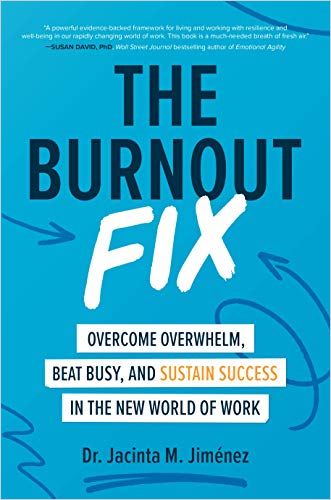A Book You Can’t Open Too Early – Make Sure You Don’t Open It Too Late

Strictly speaking, burnout isn’t a disease, or at least not a medical diagnosis. Some experts claim that conditions such as depression are behind it, and that personality traits and the way we live our private lives heavily influence the physical and emotional exhaustion many of us experience at work.
Many of us, indeed: No less than 60% of employees in the United States report being stressed out all or most of the time at work. If that number doesn’t sound scary enough, take this statistic from a recent Deloitte survey: High levels of workplace stress lead to no less than an estimated 120,000 deaths per year in the United States alone. There’s no denying it:
Burnout is a pervasive social problem in much of the so-called rich world.

It leaves perfectly capable workers feeling exhausted and overwhelmed, developing symptoms like insomnia, fatigue, heart disease or type 2 diabetes. It’s not just that organizations and their leader won’t acknowledge the size of the problem, though. More and more of them offer their staffers programs to help them recover from workplace burnout. What they really need to do, however, argues psychologist and Stanford University graduate Jacinta M. Jiménez, is to teach their people how to avoid burnout in the first place.
In her extremely well-researched and practical book, Jiménez offers advice that you may have heard before, but which she articulates with heartfelt compassion and clarifies with compelling stories. The key, Jiménez argues, is to foster resilience at every organizational level. Her advice ranges from simple tips such as not to check your phone when standing in a line to big projects like regular meditation retreats or a new hobby.
Unlike other books on this omnipresent, but often fatally neglected issue, The Burnout Fix addresses both individuals threatening to collapse in the daily frenzy that “business as usual” can be, but also their managers, who – while desperately trying to keep their people motivated – are at risk of suffering the same fate.
It’s a book you can’t open too early – make sure you don’t open it too late.











